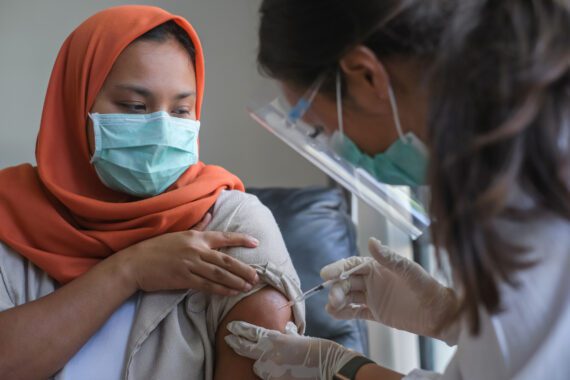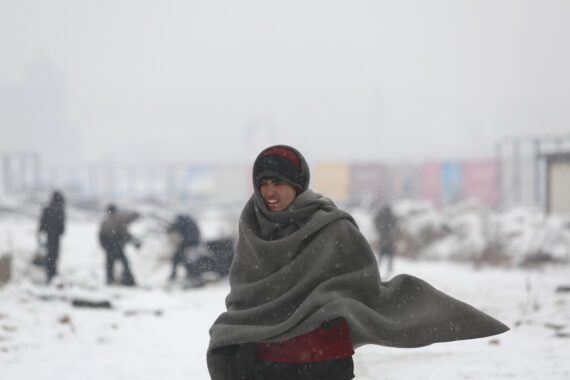Editor’s note: This post is part of a weekly, year-long series called the Nourishing Effect. It will explore how hunger affects health through the lens of the 2016 Hunger Report. The report is an annual publication of Bread for the World Institute.
By Derek Schwabe
Obesity is malnutrition, and it’s now a bigger problem in poor countries than rich ones. A new World Health Organization (WHO) report released last week showed child obesity to be the only form of malnutrition that is rising in every region of the world (see map above). Obesity’s proliferation is most rapid in developing countries, where urbanization and growing production of cheap, processed foods are reinventing children’s lifestyles and diets. The majority of the world’s obese young children now live in developing countries.
Obesity can be as costly to a nation as the severe malnutrition that causes child stunting. Stunting is a tragedy for each child and family affected, but obesity has the potential to affect even larger percentages of a country’s people, dragging down quality and length of life, and stifling the economic growth that is crucial to poverty and hunger reduction.
Sub-Saharan Africa is a striking example, where the number of children who are overweight or obese has nearly doubled since 1990. In the same period, child stunting rates in the region fell by 27 percent. As our recently launched ‘Exposing Hidden Hunger’ data tool shows, the developing world now shoulders a growing double burden: intolerable rates of chronic malnutrition coupled with the rising threat of obesity and overweight. Countries are already feeling the public health consequences of this shift. Child obesity is among the strongest predictors of adult obesity, which is closely associated with a number of deadly noncommunicable diseases such as type two diabetes, heart disease, and some forms of cancer. Diabetes rates have soared across the developing world since 2000, rising by as much as 110 percent in places as diverse as the Philippines, Guyana, and Botswana.
The WHO report prescribes a suite of policy solutions for stemming the obesity pandemic, encouraging national governments to consider imposing taxes on unhealthy processed foods such as sugar and soft drinks, and to regulate marketing of such foods to children. It also heavily emphasizes education, for both young students and their families, about the key components of a healthy lifestyle. While the report offers critical recommendations on obesity prevention for the future, it says less about how to meet the mounting burden of disease already on the way.
The 2016 Hunger Report, The Nourishing Effect, includes stronger health systems as a top recommendation for improving health and ending hunger, and calls upon donors to help poorer countries build them. Most global health-related development assistance is dedicated to disease-specific programs, a practice that has been proven shortsighted. In 2014, total assistance for health systems development was only 7 percent of all health-related development assistance. By failing to integrate programs on specific diseases into the partner country’s health system, donors risk weakening the health system in the end. The recent Ebola pandemic revealed the many weaknesses of this disease-centric approach.
Obesity-driven noncommunicable diseases threaten to overwhelm health systems in low-income countries as completely as HIV/AIDS did in the worst-affected nations. Improving health systems by equipping them to respond to the rise in noncommunicable diseases can spur progress against the most critical measures of public health, such as maternal and child mortality.
The U.S. Agency for International Development has begun to coordinate its approach to nutrition and health systems through its Multi-Sectoral Nutrition Strategy, which integrates nutrition into both its agriculture and health programs. Expanding and better-equipping such strategies will maximize the U.S. government’s contribution toward making national health systems more resilient in the face of the coming wave of diet-related health problems that will only swell as child obesity rates grow.
Derek Schwabe is a research associate in Bread for the World Institute.



